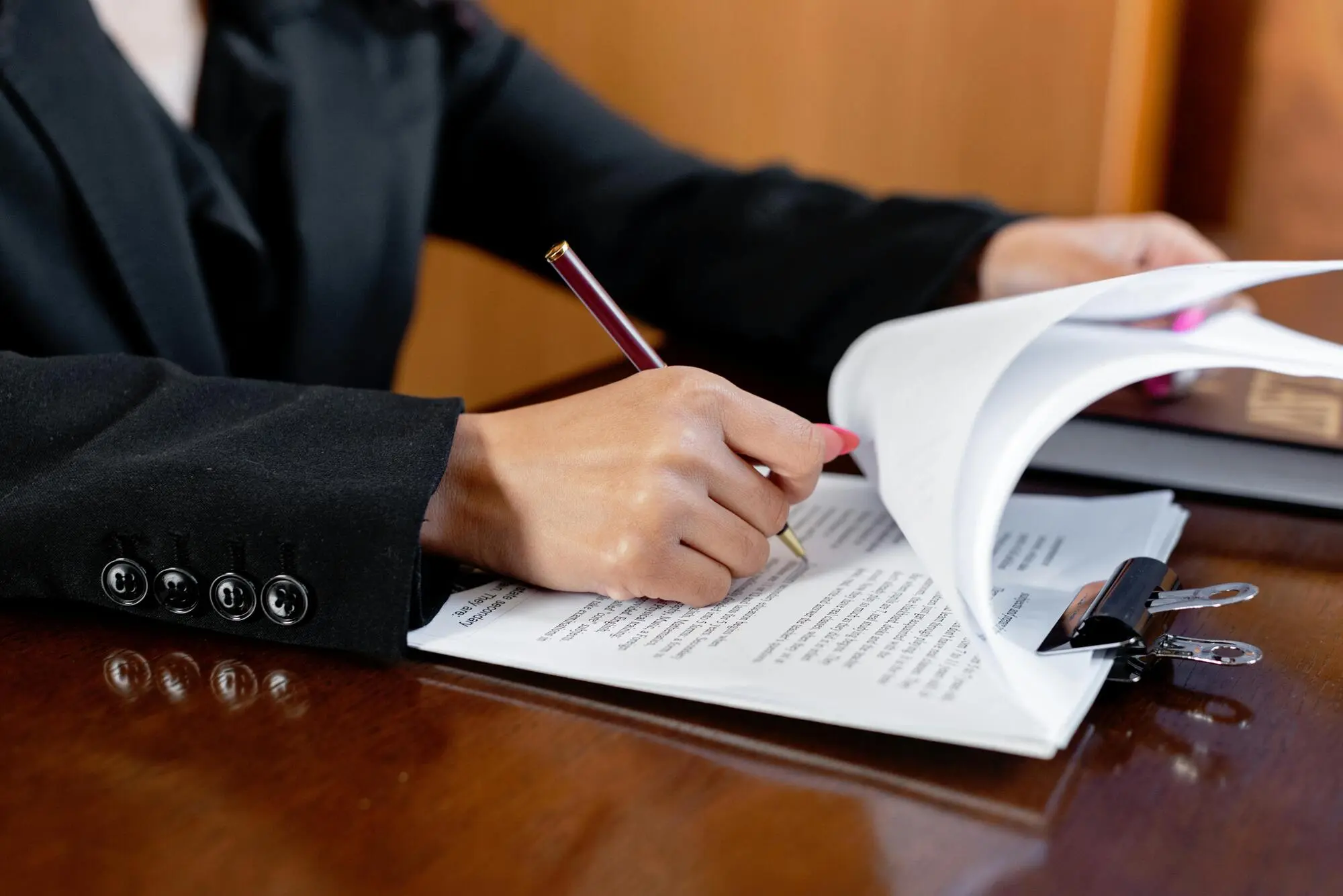Protecting your money in a world full of uncertainties calls for more than just wise investments. True financial security for those who have accumulated a lot of wealth means possessing a fortress nobody can pass.
The trust can be that fortress, but even the strongest trust needs the right tools to work well. That’s why you need the Certificate of Trust, as it helps you use the power of your trust to keep your assets yours and yours alone.
Understanding Trusts: A Foundation
A trust is a strategic tool for exerting control over your wealth today and tomorrow. It’s a separate entity, a legal vessel that holds your assets, protecting them from the storms of life – lawsuits, creditors, even family disputes.
When you, as the grantor, place your assets in the care of a trustee, that trustee follows your instructions in managing those assets. The magic happens in this separation of ownership. A trust is how you protect your legacy, reduce tax liabilities and guarantee your wealth goes to the people you want it to go to.
Trusts, though, aren’t without their challenges. Due to all these rules and regulations, it becomes a trick to handle banks, transfer property or even demonstrate the power of the trustee. In this case, you require a Certificate of Trust.
What Is a Certificate of Trust?
Certificate of Trust is a short summary, a formal document of your trust. This verifies the trust’s existence and provides all key information without sharing specifics of the whole trust agreement.
It’s a “need-to-know” document for third parties. It tells you just enough to verify the trust and that the trustee is trustworthy but doesn’t necessarily reveal any sensitive information about your specific assets or your beneficiaries.
Why is this necessary? Imagine trying to access funds in a trust account. It is important to make sure first and foremost that the trust exists (their definition of trust is pretty broad), and secondly, that the person claiming to manage these funds (the trustee) really has the legal authority to do so.
Rather than providing the whole, possibly lengthy trust document, the trustee can now just provide the Certificate of Trust. It’s efficient, it’s private, and it’s secure. Situations where you might need a Certificate of Trust include:
- Setting up or taking care of bank accounts in the trust’s name
- Putting or taking away goods from the trust
- Offering to buy or sell trust property
- Conducting business with money on behalf of the trust
Basically, a Certificate of Trust is your first choice if you have to show a third party the validity of the trust and the trustee’s power.
The Advantages of a Certificate of Trust
Privacy is vital for high-net-worth individuals. A Certificate of Trust is a protective piece of paper that lets you show there is a trust and your trustee has the right to act for you without having to provide other evidence about your financial affairs.
When you’re working with banks, investment firms, or even government agencies, it’s probably not a good idea to hand over your whole trust document. That thing probably has a lot of sensitive info about your assets, beneficiaries, and estate planning stuff. The Certificate of Trust is a simple way to share just the important details that are necessary.
Not only does this protect your privacy but makes your interaction with these institutions simpler. The authorization processes avoid delays and frustrations caused by the need from third parties to have excessive documentation.
Having a Certificate of Trust in hand, your trustee can easily carry out transactions, manage accounts, and deal with legal issues. It’s a key to a smoother, more efficient way to manage your wealth.
Key Elements of a Certificate of Trust
Although a Certificate of Trust is quick and to the point, it does contain important information to ensure its authenticity. Let’s go over all of the key elements you can find gracing a Certificate of Trust:
Name and Date of the Trust
This definitively tells us which trust the certificate is associated with. But when you’re talking about someone’s legacy, precision is key, and your information needs to be perfect.
Trust Identification Number
This unique identifier is as important for your trust as your Social Security Number is for you – it is used for tax and administrative purposes.
Grantor’s Name
This is the original creator and funder of the trust.
Trustee(s) Information
Here, you find the names and contact information for the appointed trustee(s) who administer the trust.
Trustee Powers
Most importantly, this explains the particular powers that the trustee has and what legal rights the trustee has to manage and distribute assets.
Revocability
This refers to whether the trust is revocable (or the grantor can change or revoke it in some way) or irrevocable (meaning it can’t be easily modified). Revocable certificates will also say who has power to revoke the certificate.
Keep in mind that what’s legal in one place may not be legal in another. There may be rules in different jurisdictions as to what must be included in a Certificate of Trust.
Some may require wording in specific ways or notarization. Failing to comply with these local rules may render your certificate invalid, and cause you problems later on. And having an expert guide can be invaluable for this.
Obtaining and Utilizing a Certificate of Trust
Yes, it’s true that you can make a Certificate of Trust on your own by just using standard forms or online tools. The problem? It’s nearly always a bad idea. The reasons for this are simple.
The slightest error or oversight could cost you a lot; your certificate becomes invalid or your asset protection plan is compromised. When you work with experienced legal professionals, such as ours at Dominion, you can be sure that your Certificate of Trust will meet all the requirements.
We deal with all the fine details, preparing the document made in the right way, executed in the correct manner and complying with the applicable laws of all relevant jurisdictions.
After you get your Certificate of Trust, put it with your other documents (keep it in a safe place). If you or your trustee need to prove trust or trustee authority, you or your trustee can do so when a third party requests such proof.
That would be required when opening bank accounts, surrendering property titles or any other financial duty. Remember that a Certificate of Trust will help you manage your wealth in a discreet manner. Give it the importance it deserves and don’t be afraid to get expert advice to make sure it does what it’s supposed to do.
Dominion’s Expertise
We know at Dominion that setting up a trust is not enough to truly protect your wealth. It needs a well-thought-out plan that is carried out.
It has taken our team decades to learn how to help wealthy families and people manage their trusts and keep their money safe. There aren’t any one-size-fits-all ways to protect wealth that we believe in because, frankly, they don’t work very well.
Just the opposite, in fact. We work with you to make a custom plan that will protect your wealth for future generations.
Beyond Borders: The Global Perspective
Today’s world of asset protection requires us to take a global perspective. Your wealth doesn’t stop at the border, and neither should your strategies for protecting it. Over at Dominion, we work across jurisdictions, applying our knowledge of international law and the changing of the rules around asset protection.
Consider this: A trust set up in one country may not be recognized or give the same level of protection under another. Maybe a bank in a certain jurisdiction won’t work with trusts that hold certain types of assets. These are the kinds of hurdles that high-net-worth individuals face, and this is where Dominion shines.
Our worldwide network and on-site knowledge enable us to be sure we can address typical trust problems. Our answers are not only solid legally but also best suited for your specific situation.
From setting up trusts in key jurisdictions to overseeing cross-border asset transfers to staying compliant with ever-changing regulations, we have the foresight and agility to keep your wealth safe, wherever it is.
Beyond the initial setup of your trust, this global perspective is important to your ongoing trust management and for making best use of tools such as the Certificate of Trust. Your documents are recognized and accepted wherever you need them to be, and we make sure that you don’t have to deal with costly delays or legal challenges.
Partner with Dominion for Uncompromising Protection
Anyone looking to protect their wealth and transfer of assets seamlessly has a valuable tool with a Certificate of Trust. It gives the trustee control of your affairs and your ability to maintain confidentiality and accomplish necessary basic financial business.
If you are serious about your legacy protection, then call Dominion right now. You can rely on us to help you plan your long-term asset protection strategy.




































.jpeg)


























